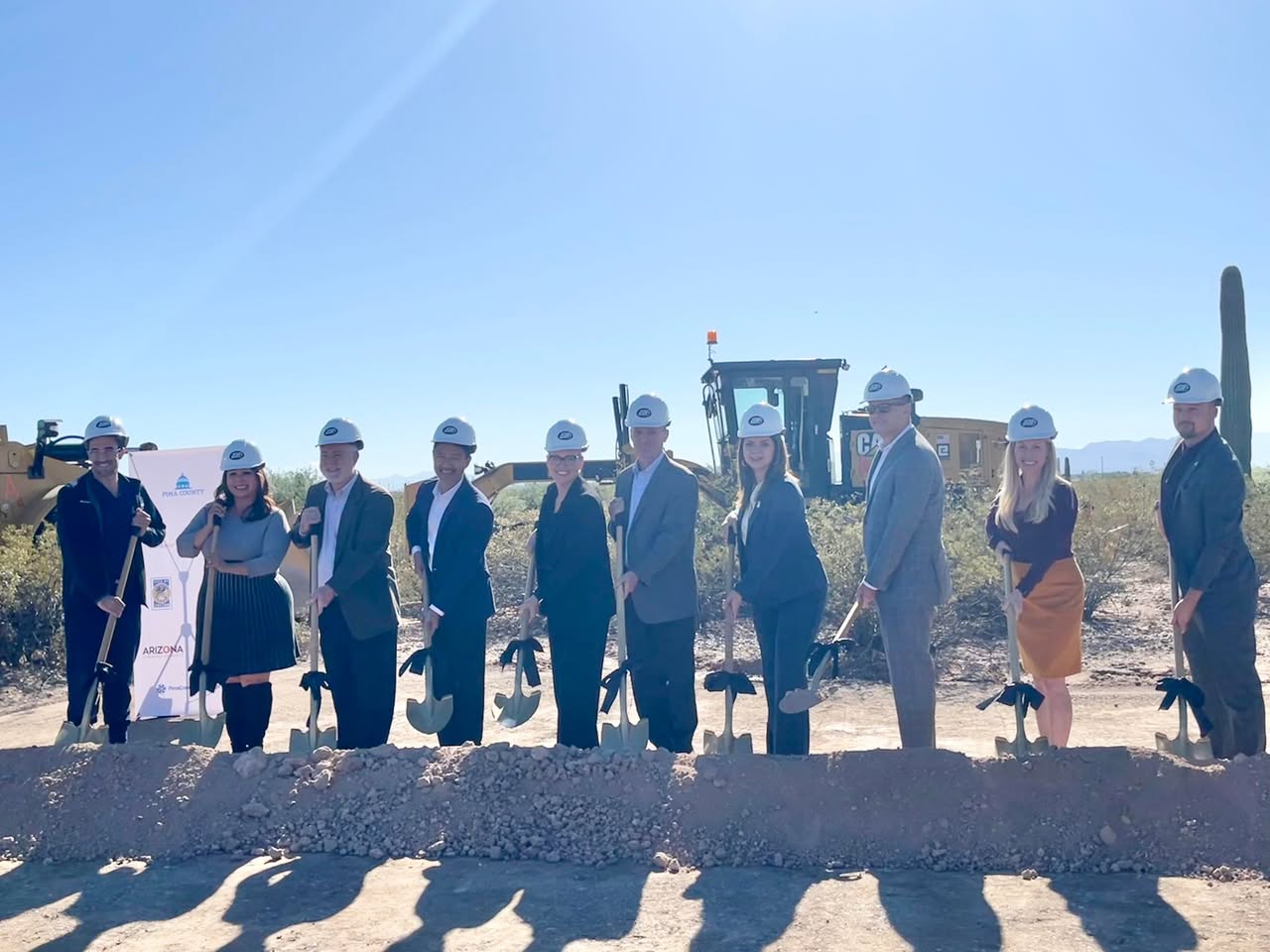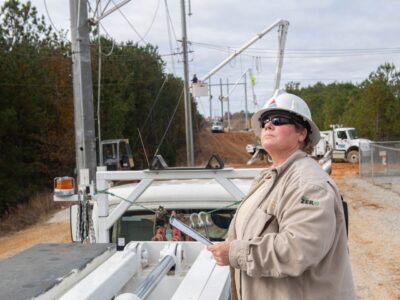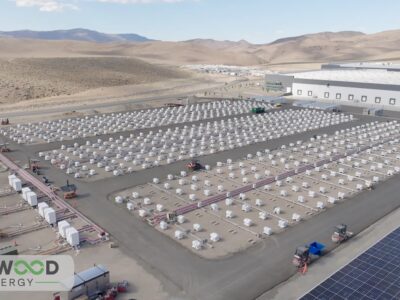“Arizona is on its way to clean energy dominance, with 24 major new projects and more than $11.8 billion in private investments, thanks, in part, to federal clean energy tax incentives that are now under threat,” Steven G. Zylstra, president and CEO of the Arizona Technology Council, wrote in a guest commentary piece published in the Arizona Capitol Times. The state’s ongoing energy transition “means good paying jobs, cleaner air, and thriving communities, especially in rural parts of Arizona that are often overlooked. And it means that Arizona is leading the way as the U.S. seeks to hold its position as a global energy leader,” Zylstra elaborated.
Zylstra pointed to many factories and operations “building a prosperous and vibrant future for our state.” In 2022, American Battery Factory announced the first domestic network of Lithium-Iron Phosphate battery cell giga-factories, which will contribute to chipping away at China’s dominance in manufacturing these batteries that are vital for energy storage systems and electric vehicles. Zhenfang Ge, Chairman of the Board, discussed the impact of these upcoming facilities: “Each factory we build will create an estimated 300 to 1,000 quality jobs. As our network grows, we will help mitigate decades of U.S. manufacturing job losses resulting from the closure of nearly 66,000 U.S. manufacturing sites while eventually making it possible to move the country and the entire world to 100% renewable power.”
In 2023, the company broke ground on a $1.2 billion gigafactory in Tucson that it estimated would create 1,000 jobs and have a $3.1 billion economic impact on Arizona. Tucson Mayor Regina Romero reflected, “Many years from now, when we look back at the global race to develop the clean technologies of the future, people will look to the Sonoran Desert.”

Photo Courtesy Arizona Commerce Authority
Lucid Motors’ 3 million-square-foot expansion of its U.S. Advanced Manufacturing Plant (AMP-1) in Casa Grande, which it announced last year in advance of the production launch of the electric Lucid Gravity, also stands out. “The expansion of our manufacturing footprint in Arizona is a significant milestone for the company, as we prepare for the next phase of Lucid’s growth… We are proud to call Casa Grande home, to continue in our role pioneering advanced technology in Arizona, and to be an American electric vehicle company,” said CEO and CTO Peter Rawlinson. The company has partnered with the Arizona Commerce Authority, the City of Casa Grande, and Central Arizona College to source, develop, and train local employees.
Meanwhile, in March, Sion Power installed a new large-format battery cell production line at its facility in Tucson. Using lithium metal, these batteries have double the energy density of comparable graphite or silicone anode versions, reducing cell material costs by 15% and cell count by 20%. President Tracy Kelly explained the importance of the technology: “The ability to scale performance from small prototype cells to large-format cells is often where battery technologies face the greatest challenge. Our new manufacturing line bridges that gap, demonstrating the capability of our lithium-metal battery technology in formats applicable to real-world applications.”
Finally, Zylstra highlighted EVelution Energy, which announced in April it would begin building the first solar-powered cobalt processing plant in the U.S. this year. When it is up and running in 2027, the facility near Wellton will be able to meet up to 40% of domestic cobalt demand, benefiting the aerospace, defense, and electric vehicle sectors. The company expects the site to create 3,300 direct, indirect, and induced jobs during its lifetime, many sourced through training programs at the Wellton Campus of the Arizona Western College, and contribute $750 million to the state’s economy. The company expected to benefit from $42.5 million in energy subsidies, however, that is now at risk as Congress considers legislation that could strip such incentives away.
Zylstra explained what is at stake: “Higher-paying jobs will empower more people to buy homes, start small businesses, and make EVs more accessible to everyday consumers. This in turn will help create a higher tax base, which translates into better schools, better roads, and stronger communities.” The U.S. Department of Energy counted more than 65,000 clean energy jobs in the state, accounting for approximately half of all jobs in the energy sector.

Photo Courtesy EVelution Energy LLC
Zylstra’s organization promotes the state’s technology ecosystem by organizing events, offering resources, and pushing for policies to connect and empower Arizonian tech companies. He noted, “As president and CEO of the Arizona Technology Council, our mission is to position our state as a clean energy and technology hub and a national center of innovation. The federal clean energy incentives have given our state a major boost and Arizona is seizing the opportunity. Southern Arizona, in particular, with its ideal climate and skilled workforce, is positioned to become a flourishing clean energy hub for the nation.”
Moreover, Zylstra highlighted the importance of the projects in the district of Rep. Juan Ciscomani, where, according to Climate Power, new projects representing “at least half a billion dollars” will contribute to making the region “the capital of electric batteries while the state becomes a solar powerhouse and electric-vehicle manufacturing hub.”
Although the U.S. House’s version of the reconciliation bill essentially takes a sledgehammer to clean energy tax credits, there is still hope to preserve them as the Senate considers the legislation. Zylstra expanded that the significance is more than these industries: “This isn’t just about businesses and factories and leading the way. It’s about families and communities: better paying jobs, lower energy bills, economic opportunity, stronger schools, and thriving communities.”
Zylstra concluded, “Arizona is on the cusp of a future where a mom can drive her kids to school in an electric car made in Arizona, charged with solar-powered energy harnessed under our hot Arizona sun, and stored in Arizona-built electric batteries. A world where her kids go to a well-resourced, energy-efficient school with other happy, healthy, and economically secure kids. Where she shops at locally-owned businesses and grabs lunch from a new restaurant whose owner is living their American dream. A thriving, vibrant future where the air is cleaner and power is cheaper. This future is within our grasp, but it requires a bipartisan commitment to protect clean energy investments… Congress must defend these investments, regardless of petty partisanship.”





